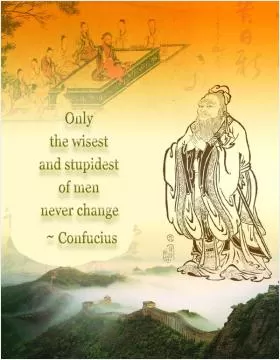The strength of a nation derives from the integrity of the home

The strength of a nation derives from the integrity of the home
Confucius, the ancient Chinese philosopher and teacher, believed that the strength of a nation derives from the integrity of the home. This concept is deeply rooted in Confucian philosophy, which emphasizes the importance of family, respect for elders, and moral values in society.According to Confucius, the family is the foundation of society. He believed that a strong and harmonious family unit is essential for the well-being of a nation. In Confucian thought, the family is seen as a microcosm of society, with each member playing a specific role and contributing to the overall harmony and stability of the household.
Confucius placed a strong emphasis on filial piety, or respect for one's parents and ancestors. He believed that honoring one's parents and upholding family traditions were essential for maintaining social order and stability. Confucius taught that individuals who are respectful and obedient to their parents will also be respectful and obedient to their rulers, leading to a more harmonious and prosperous society.
In Confucian thought, the integrity of the home is closely linked to the moral character of its members. Confucius believed that individuals who cultivate virtues such as honesty, compassion, and humility within the family will also exhibit these qualities in their interactions with others in society. By promoting moral values and ethical behavior within the home, Confucius believed that individuals would contribute to the greater good of society as a whole.
Furthermore, Confucius believed that the family serves as a training ground for cultivating moral virtues and developing a sense of social responsibility. By instilling values such as loyalty, righteousness, and benevolence within the family, individuals are better equipped to fulfill their roles as responsible citizens and contribute positively to the well-being of the nation.












 Friendship Quotes
Friendship Quotes Love Quotes
Love Quotes Life Quotes
Life Quotes Funny Quotes
Funny Quotes Motivational Quotes
Motivational Quotes Inspirational Quotes
Inspirational Quotes